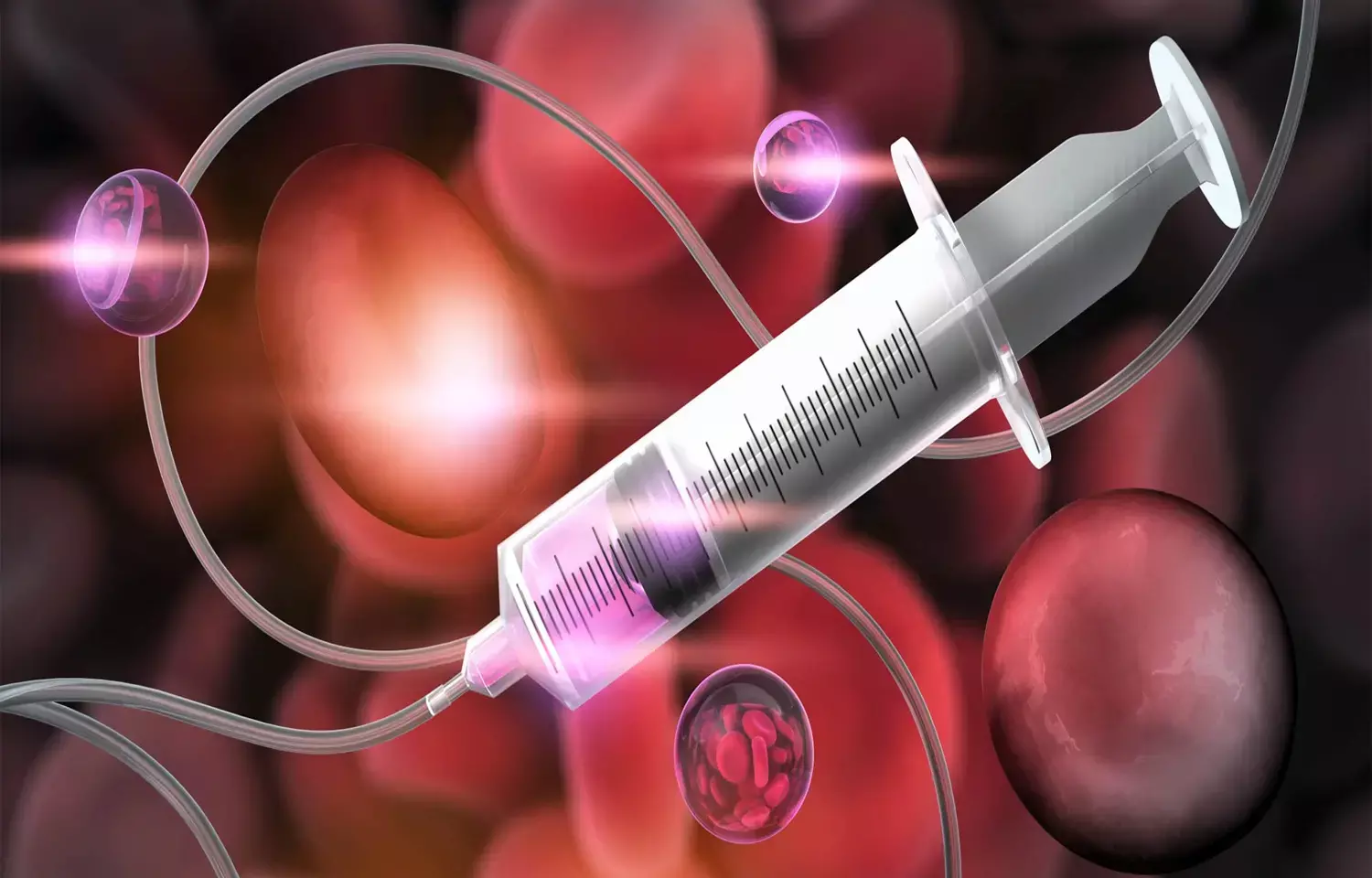- Home
- Medical news & Guidelines
- Anesthesiology
- Cardiology and CTVS
- Critical Care
- Dentistry
- Dermatology
- Diabetes and Endocrinology
- ENT
- Gastroenterology
- Medicine
- Nephrology
- Neurology
- Obstretics-Gynaecology
- Oncology
- Ophthalmology
- Orthopaedics
- Pediatrics-Neonatology
- Psychiatry
- Pulmonology
- Radiology
- Surgery
- Urology
- Laboratory Medicine
- Diet
- Nursing
- Paramedical
- Physiotherapy
- Health news
- Fact Check
- Bone Health Fact Check
- Brain Health Fact Check
- Cancer Related Fact Check
- Child Care Fact Check
- Dental and oral health fact check
- Diabetes and metabolic health fact check
- Diet and Nutrition Fact Check
- Eye and ENT Care Fact Check
- Fitness fact check
- Gut health fact check
- Heart health fact check
- Kidney health fact check
- Medical education fact check
- Men's health fact check
- Respiratory fact check
- Skin and hair care fact check
- Vaccine and Immunization fact check
- Women's health fact check
- AYUSH
- State News
- Andaman and Nicobar Islands
- Andhra Pradesh
- Arunachal Pradesh
- Assam
- Bihar
- Chandigarh
- Chattisgarh
- Dadra and Nagar Haveli
- Daman and Diu
- Delhi
- Goa
- Gujarat
- Haryana
- Himachal Pradesh
- Jammu & Kashmir
- Jharkhand
- Karnataka
- Kerala
- Ladakh
- Lakshadweep
- Madhya Pradesh
- Maharashtra
- Manipur
- Meghalaya
- Mizoram
- Nagaland
- Odisha
- Puducherry
- Punjab
- Rajasthan
- Sikkim
- Tamil Nadu
- Telangana
- Tripura
- Uttar Pradesh
- Uttrakhand
- West Bengal
- Medical Education
- Industry
Ferric carboxymaltose significantly increased hypophosphataemia risk in IBD patients with IDA

A new study published in BMJ Gut found that, iron deficiency anaemia (IDA) treatment with ferric derisomaltose (FDI) and ferric carboxymaltose (FCM) was equally effective, while the latter dramatically increased the rate of hypophosphataemia.
Hypophosphataemia can be brought on by intravenous iron, a typical treatment for anaemia and iron shortage brought on by inflammatory bowel disease. In this study, the incidence of hypophosphataemia following ferric derisomaltose or ferric carbo therapy was studied.
20 outpatient hospital clinics throughout Europe participated in this randomised, double-blind clinical investigation (Austria, Denmark, Germany, Sweden, UK). Using the same haemoglobin- and weight-based dosage regimens, adults with IBD and IDA were randomly assigned 1:1 to receive FCM or FDI at baseline and at Day 35. The main result was the frequency of hypophosphataemia (serum phosphate 2.0 mg/dL) in the safety analysis set (all patients who received 1 dosage of study medication) at any point from baseline to Day 35. Measurements were made of patient-reported fatigue scores as well as indicators of mineral and bone homeostasis.
The key findings of this study were;
1. 156 patients in all were screened; 97 (49 FDI, 48 FCM) were accepted and received treatment.
8.3% (4/48) of patients receiving FDI experienced incident hypophosphataemia, whereas 51.0% (25/49) of patients receiving FCM experienced it.
2. Joth iron preparations fixed IDA. In both groups, patient-reported fatigue scores improved, though with FCM more gradually and to a smaller amount than FDI; a delayed reduction in fatigue was linked to a bigger decrease in phosphate concentration.
In conclusion, the PHOSPHARE-IBD experiment proved that hypophosphataemia is a prevalent adverse effect of FCM that is triggered by significant elevations in FGF23 rather than a class or dose impact of intravenous iron.
Reference:
Zoller, H., Wolf, M., Blumenstein, I., Primas, C., Lindgren, S., Thomsen, L. L., Reinisch, W., & Iqbal, T. (2022). Hypophosphataemia following ferric derisomaltose and ferric carboxymaltose in patients with iron deficiency anaemia due to inflammatory bowel disease (PHOSPHARE-IBD): a randomised clinical trial. In Gut (p. gutjnl-2022-327897). BMJ. https://doi.org/10.1136/gutjnl-2022-327897
Neuroscience Masters graduate
Jacinthlyn Sylvia, a Neuroscience Master's graduate from Chennai has worked extensively in deciphering the neurobiology of cognition and motor control in aging. She also has spread-out exposure to Neurosurgery from her Bachelor’s. She is currently involved in active Neuro-Oncology research. She is an upcoming neuroscientist with a fiery passion for writing. Her news cover at Medical Dialogues feature recent discoveries and updates from the healthcare and biomedical research fields. She can be reached at editorial@medicaldialogues.in
Dr Kamal Kant Kohli-MBBS, DTCD- a chest specialist with more than 30 years of practice and a flair for writing clinical articles, Dr Kamal Kant Kohli joined Medical Dialogues as a Chief Editor of Medical News. Besides writing articles, as an editor, he proofreads and verifies all the medical content published on Medical Dialogues including those coming from journals, studies,medical conferences,guidelines etc. Email: drkohli@medicaldialogues.in. Contact no. 011-43720751


